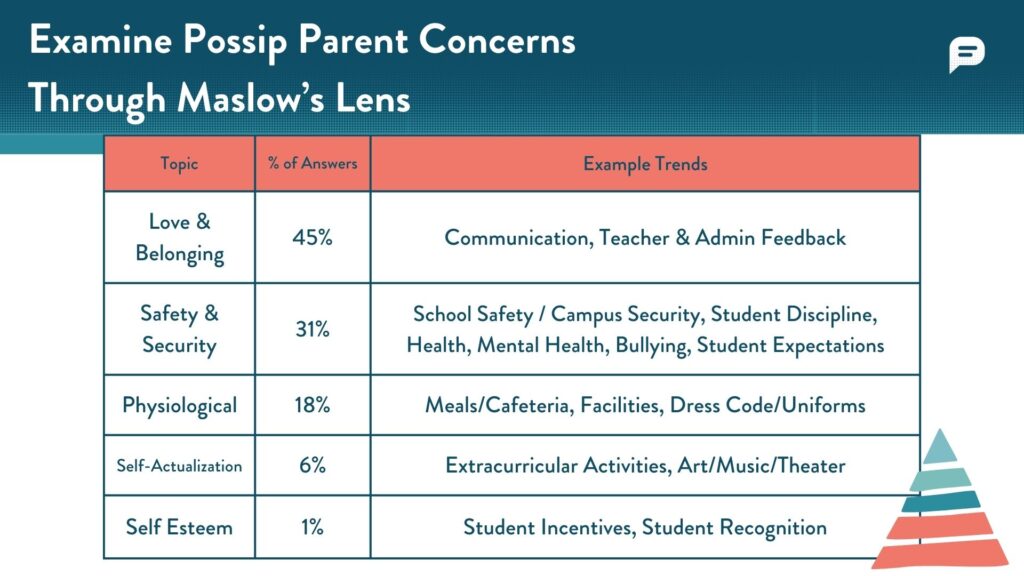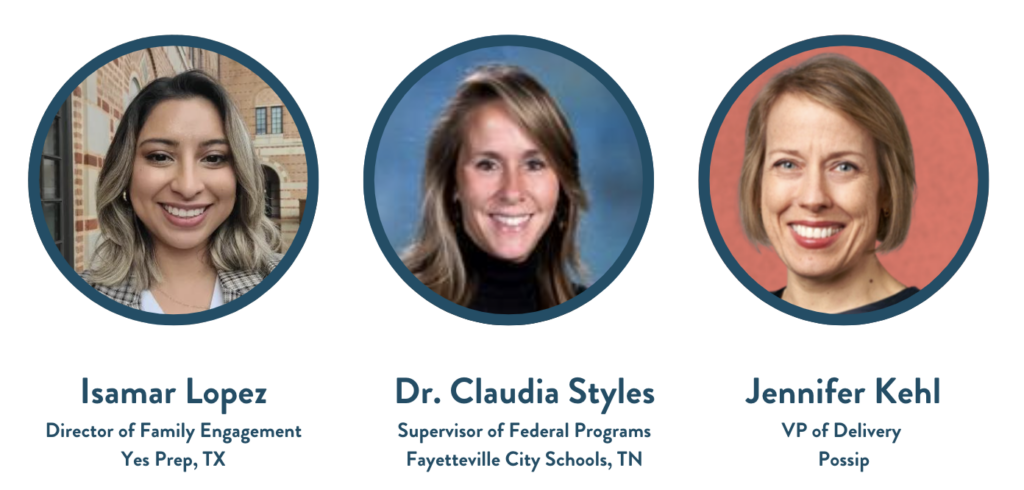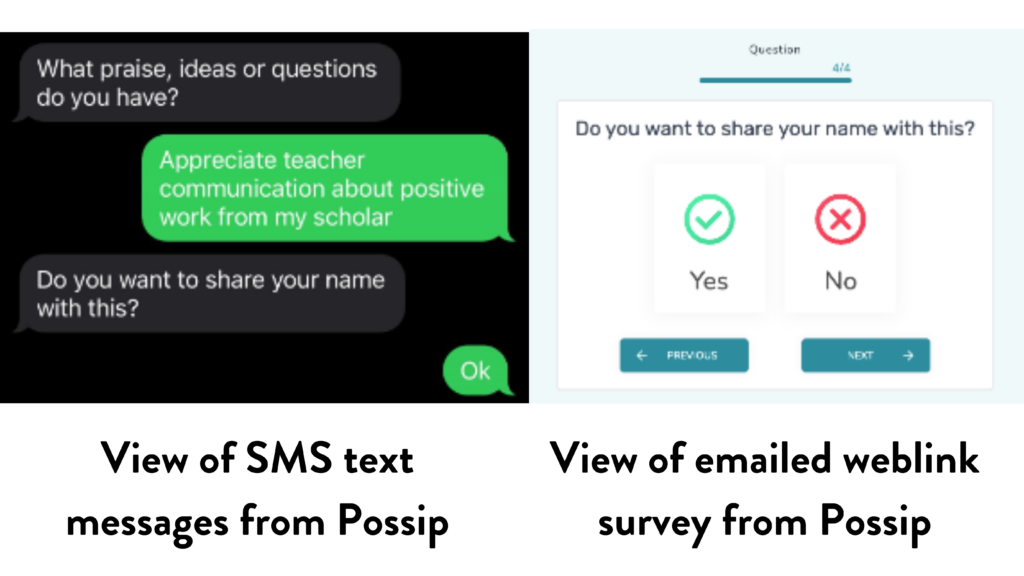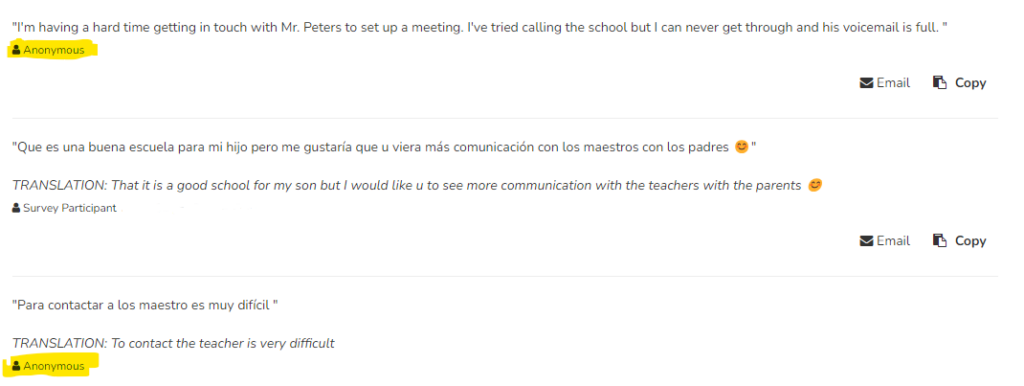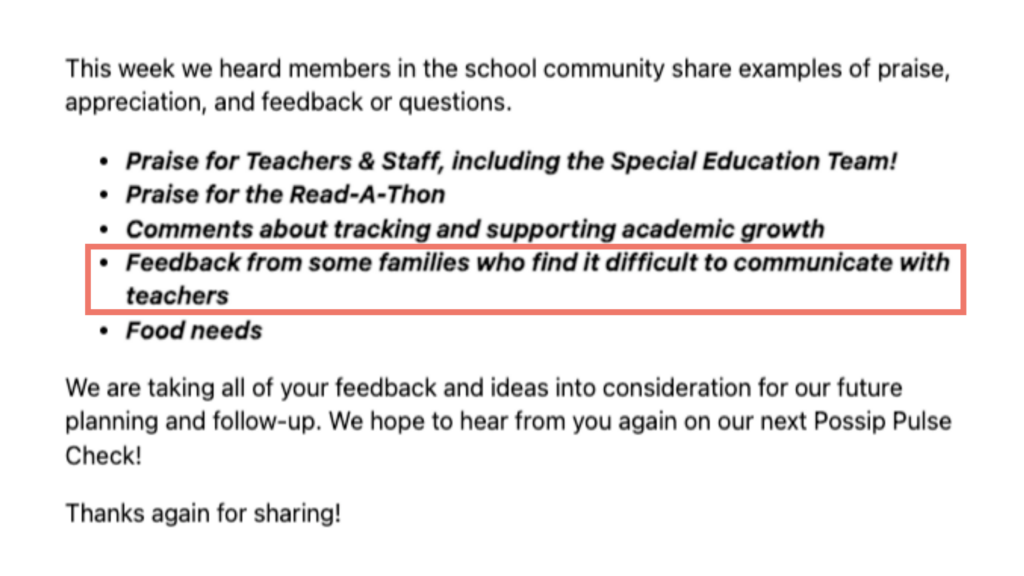Last week, we were excited to see our Possip CEO and co-founder, Shani Dowell, recognized as part of Nashville’s Black Innovation and Entrepreneurship Day. You can review the details in this article. In case you didn’t know, Possip stands for “positive gossip” – we’ll explore that more thoroughly later in this post.
The Possip team celebrates Black entrepreneurism by telling the story of Possip and Shani Dowell’s vision for collecting and using positive gossip.
Possip’s platform hasn’t just transformed how schools receive and use feedback. Possip has redefined community engagement in the educational process. Shani’s vision for transparent, effective communication between schools and families has extended far and wide reaching even beyond schools into other sectors.
The Genesis of Possip
Motivated by her own experiences as a parent and her background in education, Shani identified a recurring problem. There seemed to be a lack of a streamlined, fear-free channel for parents to voice their needs, ideas and praise about their children’s schools. This realization led to Possip, a platform designed to facilitate two-way feedback between parents and schools.
Shani’s vision was clear: to empower parents and schools with the tools needed to collaboratively enhance the educational environment for students. She made history by being the first Black woman in Tennessee to get more than $1 million to help start her business, Possip. But her work with Possip has not been just about coming up with a new idea. It’s also about overcoming challenges and breaking barriers and setting new benchmarks in the edtech industry.
Dowell shares, “Part of the genesis for Possip came from my own experiences in school. I went to amazing schools – but spent almost three hours each day on the bus. This meant the opportunities for my parents to be engaged or volunteering at school were few. Also, I was often on the bus crossing demographic lines and neighborhoods. I wanted for future families to feel entitled, empowered, and able to contribute their ideas and perspective – and not feel limited or confined. During Black History Month I borrow inspiration from the idea that Black History is also a celebration of the power of community. Possip aims to tap into the power of community to strengthen schools and organizations.”
Positive Gossip: What Possip Stands For
“Possip” is a mash up of positive + gossip. The human brain is actually hard wired to gossip. Shani believes we can tap into that instinct for positive outcomes – and channel the gossip productively. In other words, we can bring the positive gossip happening in the community and on playgrounds inside the buildings. A principal in Tennessee encapsulated the sentiment perfectly: “My heart pounds when the Possip report is delivered. It’s like getting a package in the mail…What truth am I gonna hear this week?”
Possip invites respondents to share concerns. We’re equally (and maybe even more importantly) focused on celebrating successes and acknowledging the hard work of educators and staff. The majority of responses in Possip’s quick, 1-minute Pulse Check© surveys are overwhelmingly positive. The Possip staff and reporters see responses from parents like “Mr. Fang es muy buen maestro” (translation: “Mr. Fang is a very good teacher:) and “You guys are doing great so far. I have no complaints and I love all of the extra curriculums available to all kids.”
Staff members also praise each other with notes such as, “I believe the leadership admin team sincerely cares about every kid and every staff member. I believe they are all doing everything they can to support teachers, students, and parents…. I value the positive relationships I have with my coworkers….The 2 office ladies are goddesses and need a raise  ”.
”.
Possip's Impact to Date
Data from the 2022-23 school year reveals that Possip served 1,184 schools and heard from over 265,500 unique family voices. Families, staff, and students across the country used 68 different languages to express their praise, concerns, and ideas with their administrations. With this platform, schools averaged outreach to their communities 13 times throughout the school year, moving beyond the confines of annual surveys. Since Possip’s inception, we have received over 1.55 Million responses from families, staff, and students accross the nation.
The 2022-23 feedback trends identified through Possip range from communication and student discipline to school safety and carline logistics. They highlight the platform’s role in addressing both everyday logistical issues and deeper systemic challenges. Such insights empower schools to make informed decisions, enhancing both the learning environment and community relations. In addition to identifying and tracking trends, the Possip Reporting Team categorizes and triages responses so that administrators can quickly see what their community is saying. The Possip team provides resources and tools to help jumpstart conversations or plans to address trends when needed.
The accolades from customers underscore Possip’s effect. A Resource Coordinator in Ohio noted, “We’ve been able to utilize these [Possip] reports to strengthen our communication methods and information shared with our families, as well as give positive feedback to our staff. Love POSSIP!” Meanwhile, a family member in Texas highlighted the platform’s role in providing a safe space for voicing concerns, thereby fostering a proactive community spirit.
Looking ahead, Possip is poised for even greater impact. Dowell shares, “Schools are a beautiful place to start and launch an idea. Schools include the diversity of humanity. Now, as Possip expands our work outside of school buildings, we have the same opportunity. We’re excited to help maximize the power of the community and people to make organizations and systems even stronger.”
Possip stands as a testament to the power of vision, persistence, and the belief in making a difference.
The post Possip: Harnessing Positive Gossip and Empowering Communities appeared first on Possip | Engagement Platform | School Feedback Survey.
